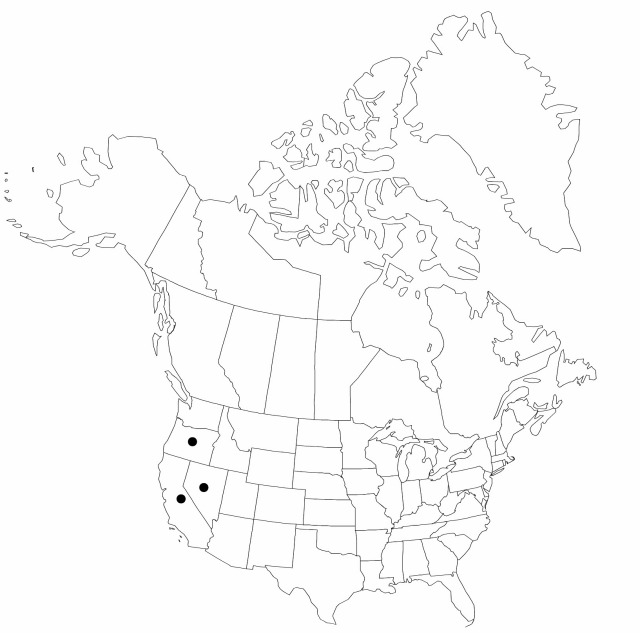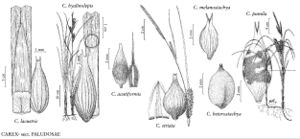Difference between revisions of "Carex whitneyi"
Proc. Amer. Acad. Arts 7: 394. 1868.
Synonyms: Carex flaccifolia Mackenzie Carex jepsonii J. T. Howell
FNA>Volume Importer |
FNA>Volume Importer |
||
| Line 52: | Line 52: | ||
|publication year=1868 | |publication year=1868 | ||
|special status= | |special status= | ||
| − | |source xml=https://jpend@bitbucket.org/aafc-mbb/fna-data-curation.git/src/ | + | |source xml=https://jpend@bitbucket.org/aafc-mbb/fna-data-curation.git/src/f6b125a955440c0872999024f038d74684f65921/coarse_grained_fna_xml/V23/V23_898.xml |
|genus=Carex | |genus=Carex | ||
|section=Carex sect. Longicaules | |section=Carex sect. Longicaules | ||
Revision as of 19:10, 24 September 2019
Culms 25–100 cm. Leaves: sheath fronts brownish; blades 2–6 mm wide. Spikes: proximal pistillate spikes white, ovate, 7–30 × 5–9 mm, ciliate distally; terminal spike white-hyaline, tinged red-brown, ovate, 5–30 × 2–4 mm. Perigynia green, ca. 5-veined, 3.7–5.5 × 1.5–2.5 mm; beak tip with narrow, white margins. Achenes ovoid to obovoid, 2.8–3.9 × 1.7–2.4 mm.
Phenology: Fruiting summer.
Habitat: Dry, sandy and gravelly meadows, open forests
Elevation: 1200–3400 m
Distribution

Calif., Nev., Oreg.
Discussion
Selected References
None.
Lower Taxa
None.
